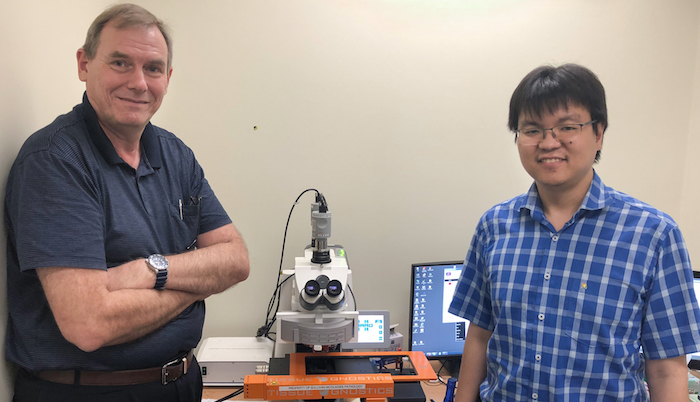
The anxious wait for pathology test results could soon be reduced and lab workflows increased, after University of Queensland researchers were able to accelerate machine learning with one of Australia’s specialised supercomputers.
UQ’s Research Computing Centre, together with leading researchers from the Faculties of Science, Engineering, Architecture and Information Technology, and Medicine, recently received a grant to almost triple the size of the university’s high-performance computer, Weiner, which delivers unprecedented performance for image processing and deep learning algorithms.
On top of almost tripling Wiener in size, the team has also managed to run many graphics processing units in parallel on the HPC, speeding up artificial intelligence training to run up to hundreds of times faster than before.
Professor Brian Lovell, from the School of Information Technology and Electrical Engineering, and digital pathology researcher Dr Arnold Wiliem said the upgrade would allow for advancements across a number of fields and applications, including pathology services.
“We’re using Wiener to digitise pathology processes for faster medical diagnoses and to help address Australia’s shortage of trained pathologists,” Professor Lovell said.
“The upgrade means we can better train neural networks, which are computer systems modelled on the human brain and nervous system, allowing machines to learn processes on their own.”
Professor Lovell said almost 70 per cent of general practitioner diagnoses were based on pathology tests, and these changes could revolutionise Australian laboratories.
Manager of Sullivan Nicolaides Pathology’s Immunology and Serology Department, Peter Hobson said the upgrade would bring a number of benefits.
“Having a digitised approach will reduce potential human errors and it will also make it easy for us to go back and reassess specimens, while also building an electronic record of diseases,” Mr Hobson said.
The project could also have applications in immunology, histopathology and microbiology.
UQ Deputy Vice-Chancellor (Research) Professor Bronwyn Harch said this is just one example of how AI and machine learning is developing at UQ.
“UQ’s AI capabilities continue to grow, allowing us to deliver novel solutions in the new Industry 4.0 age with our industry and government partners,” Professor Harch said.
“The applicability of this technology is incredibly huge, and this upgrade will assist in accelerating a wide variety of research projects across the university.”
Media: UQ Researcher, Professor Brian Lovell, lovell@itee.uq.edu.au, 0411 094 380;
UQ Communications, Paige Ashby, p.ashby@uq.edu.au, 0430 511 615.



